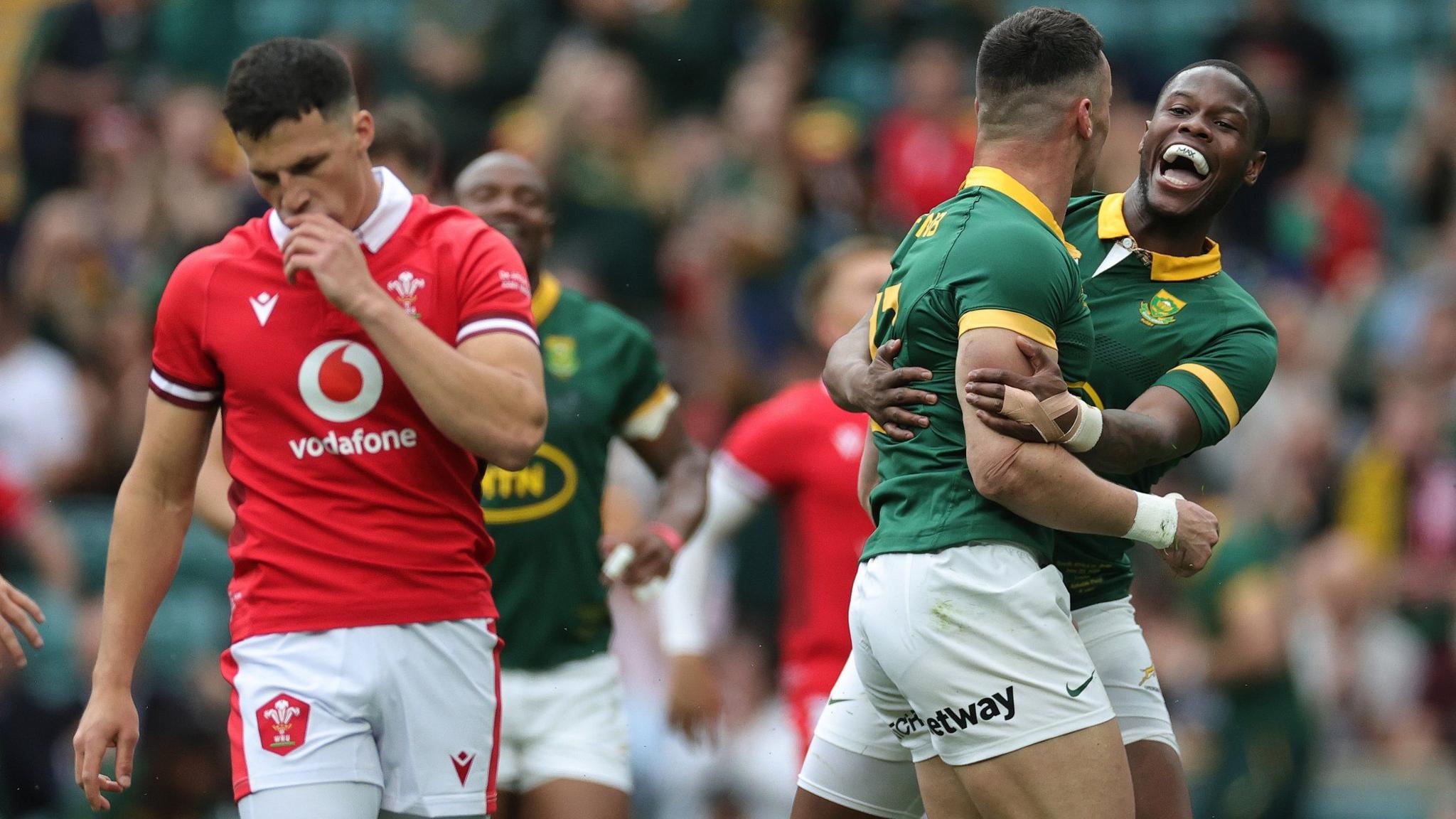WRU reveals five-year plan to save Welsh rugby
WRU strategy aims to bring success on pitch, says boss Abi Tierney
- Published
After a torrid 12 months on and off the pitch, the Welsh Rugby Union (WRU) has outlined its five-year plan for the future of the game in Wales.
Fittingly during a general election, the governing body has unveiled what is, in effect, its manifesto for rebuilding the national sport.
New chief executive Abi Tierney said the WRU aims to improve the men's and women's national teams as well as the regions, increase participation in the community and women's game and improve the game's finances.
However, the exact detail of just how it will achieve their "ambitious mission" is not expected until October.
At a Principality Stadium briefing on the 25th anniversary of the first game at the venue, Tierney and chair Richard Collier-Keywood spelt out the WRU's financial difficulties.
They said the union has been operating well beyond its own means with an annual deficit of £15m as it struggles to pay off £24m of debt, largely blamed on Covid.
There was a feeling of regret that the previous WRU regime had sold some of its share of United Rugby Championship (URC) and Six Nations media rights.
They also confirmed there is a £35m funding gap for the regions over the next five years, putting the future of all four regions in doubt.
WRU's goals to 2029
National teams consistently ranked in world top five
Club teams challenging in the play-offs of URC and Celtic Challenge
Retain and grow the number of active participants
Financial sustainability at all levels
Increase positivity of the game among the Welsh public
"When I came in, it struck me that we're not running rugby as a business," said Tierney, who took over her role in January.
"We are spending too much money and we can't survive with the way we are going now.
"So we are going to have to make some hard decisions to get some sound financial foundations."
Wales’ Principality Stadium at 25: 'The Eras Tour'
- Published26 June 2024
WRU posts £4.3m loss including £1.9m in pay-offs
- Published8 November 2023
The woman aiming to change Welsh rugby
- Published18 August 2023
Cardiff, Dragons, Ospreys and Scarlets saw their funding slashed by £2m each last season and will see it cut further to £4.5m for 2024-25.
But the WRU anticipates each team requires a further £2m each year to be competitive.
"The level of investment required to make four regions competitive is significant and we have a significant gap to close," said Tierney.
"There are ways to address that, by growing income or restructuring the debt, but if we can't do that, then perhaps we need to look at the regional structure.
"That could involve looking at different funding models, of two having more money than the other two, or three and one, but the priority is closing the gap."

Wales were beaten 41-13 in last weekend's international against South Africa
Tierney's appointment was prompted by the scandal of a BBC Wales investigation into allegations of sexual misconduct.
An independent review later found aspects of the WRU's culture were sexist, misogynistic, racist and homophobic.
On the pitch, Welsh rugby has also endured its worst season in decades.
The men's and women's national teams finished bottom of their respective Six Nations and three regions finished in the bottom five of the URC.
Saturday's defeat by South Africa was the seventh successive loss for Warren Gatland's side, his worst run as Wales head coach.
"At the heart of this strategy is success on the field," said Tierney.
"That drives ticket sales, brings sponsorships and that money funds the rest of the game, which provides the foundation for the professional game.
"Every element of this strategy needs to work for success on the pitch.
"We will never be the biggest or richest rugby nation, but we can be the smartest and hopefully this strategy will help us all fall back in love with the game."